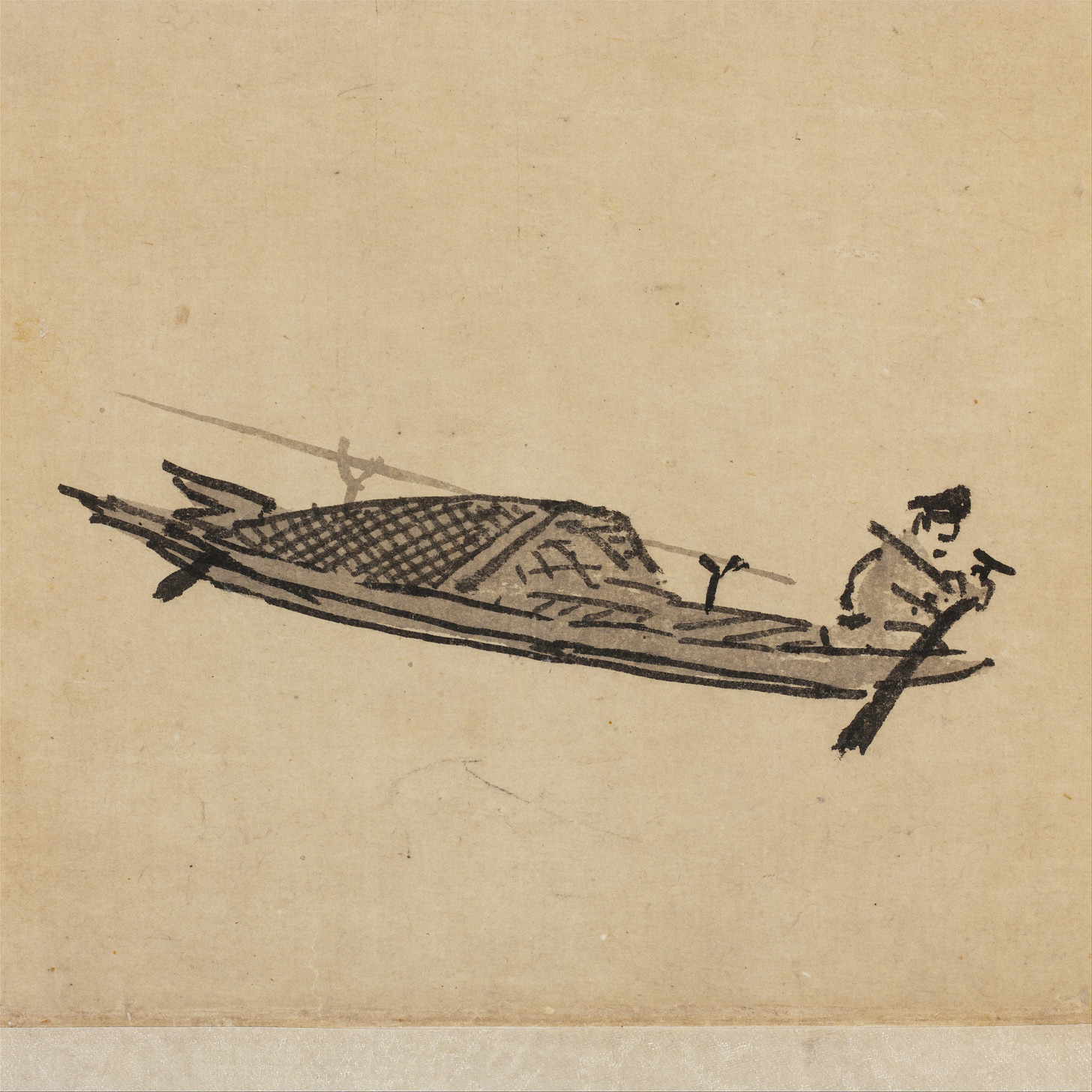Chen Cao'an Has Advice for Being Online in an Election Year
It's two words — one, if you use a contraction.
Welcome to 2024! It is a basically dumb-assed time to be alive, and what with wars, atrocities, the whole-ass situation, and the return of fascism, cicadas, and US presidential elections, 2024 promises to be the dumbest year yet.
It’s almost enough to drive a body to Discourse — but stay strong and fight that urge: being online this year is going to be bad enough already. Here’s Chen Cao’an 陳草庵 (1285 - ca. 1330), putting it better than I could:
風波實怕,唇舌休掛,
鶴長鳧短天生下。
勸漁家,共樵家,
從今莫講賢愚話,
得道多助失道寡。
賢,也在他;
愚,也在他。Fearsome enough the storms of life,
So guard your lips and tongue.
If this duck has short legs, and that crane long,
They are as Heaven made them.
So a word to the “fishermen” commentators
And the “woodsman” pundits who debate them:Cease your talk of worthy men
And go light on the idiots, too —
“Who finds the Way finds help along his way;
Whoever strays will find his friends are few.”
— Worthy’s a word for someone else,
And idiot’s not up to you.

I’m putting my thumb on the interpretive scale a bit in this draft with my handling of the lines about “fishermen” and “woodcutters.” To see why, let’s bop over to Crump’s Song-Poems from Xanadu, where I first saw the poem, and where Crump says he “still puzzle[s] over the author’s cranky Taoist message" in what he reads as follows:
Fearsome enough the storms of life,
So guard your lips and tongue.
"The Heaven that made a duck's legs short
Yet made the crane's legs long."
Oh Fisher! Oh Woodsman! now
Speak ye less of saints and fools;
Many aid one who's found the Tao,
While the bungler's friends are few.
A saint is always someone else,
The fool is never you.
There’s so much to like here! I’ve stolen Crump’s first two lines for my current version, and doubt I’ll be able to improve on them. The last two lines read really nicely too, though “saint” would be a problem no matter what, and I think I like his handling of the third line about ducks and cranes (鶴長鳧短天生下) more than my own. But he’s missing that the line about “finding the Way” comes from Mencius, and consequently misreading the ending in a way that keeps his interpretation from hanging together as well as it could.
I understand this poem as a straightforward caution against being too free with the moral judgments. In that light, I read the line about “fisherman” and “woodsman” — conventional figures for the homely wisdom of common folk, which is to say that they were common ventriloquist’s dummies for writers throughout the ages — as Chen addressing the poetic alter egos of his contemporaries: Hey @fisherman1279, hey @HumbleWoodsman420, log off and touch grass. The “made them / debate them” rhyme is probably too cute, and I doubt it’ll survive into future drafts, but I do think there’s something funny in the original at this point: usually we’re the ones listening to fishermen and woodsmen for advice, not the other way around.
The advantage of this reading is that it makes the poem consistent with itself: we go from “guard your lips and tongue” to “who are you to comment anyway?” to “less judgy plz” to, in the last two lines — literally “worthy also lies elsewhere; idiot also lies elsewhere” — what I take to be “not for nothing but judging can go both ways btw.”
No cranky Taoist message necessary. Crankiness, though.

You don't think the last two lines could be using 愚 and 贤 in the purely descriptive sense, rather than as quotes/mentions? Understanding the 他 as the subjects of the gossip themselves? I.e. saying something like, if they're dumb, that's their problem; if they're saints, that's their good fortune. I feel that reading would better reflect the heaven-made-them-that-way section at the beginning, and allows the Mencius quote to land better: the Way will have its mysterious effect, and it doesn't need your gossip to help it along.
In the second sentence of this post you lament the return of fascism. Really? Who? Whom? Why inject the grossest of stereotypes into a Substack devoted to some of the most subtle and sophisticated poetry ever written?